Mehedi Al Amin from Dubai, UAE
Some big economies have failed to keep promises of technology transfer in renewable energy, are financing fossil fuel in power generation in south Asian countries risking the lives and livelihood of a big chunk of poor people, South Asian Just Transition Alliance (SAJTA) claimed.
The regional alliance made this claim in a press conference on Monday at COP28 venue in Dubai. Instead of helping the world to achieve the climate goal, those countries are promoting more carbon emissions by providing false solutions, the expert said in the press conference.
They demanded a declaration for a cut-off date for the use of fossil fuel in power generation and adoption of an ambitious target to generate at least 60 per cent of the global demand for electricity from renewable sources.
The written statement presented by Hasan Mehedi, Chief Executive of Coastal Livelihood and Environmental Action Network, said “The big economies are still supporting Hydropower in the name of renewables and clean energy. In this way, the big corporations get a clean chit for grabbing land, rivers, and common water bodies, ignoring basic human, gender, and environmental rights, and depriving indigenous communities of their rights.
Japan, Korea, and Germany with the Asian Development Bank (ADB), Asian Infrastructure Investment Bank (AIIB), European Investment Bank (EIB) and International Finance Corporation (IFC) financing in these projects.
Mehedi, also the focal point of SAJTA said, “Some advanced countries like Japan are pushing developing countries to accept its false solutions; liquid hydrogen, ammonia, and Carbon Capture and storage (CCS) technologies which are highly expensive and not proven to reduce emissions"
SAJTA demanded stop promoting false solutions.
"Japan is using the financing trap of ODA to force us to promote Liquefied Natural Gas (LNG) and other false solutions. As the President of COP-28, the UAE’s support for the false solutions is impudence to the climate-vulnerable communities. It’s a shame, Hasan Mehedi said.
South Asia is a sub-region with a population size of 1.87 billion, which is 25 per cent of the global population. It is also the home of around 29 per cent of poor people in the world. The citizens of South Asia are also suffering from serious levels of energy poverty. The per capita electricity consumption in South Asia is only 694 kWh while the global average is 3,204 kWh.
According to the Climate Risk Index (CRI), Six countries out of seven - Bangladesh, India, Nepal, Pakistan, and Sri Lanka - are among the top 10 most vulnerable countries in the world affected by the adverse impacts of climate change.
In line with the global pledges, South Asian countries are also required to decarbonize their energy sector.
Mehedi said, “India, one of the South Asian countries, is the third highest emitting country in the world. India is also generating the cheapest solar power in the world. China, another neighboring country in South Asia, is the biggest and cheapest supplier of the RE-accessories.
‘’Both countries are ethically responsible for supporting other countries in achieving affordable 100% renewables by 2050. We urge the advanced developing countries, including India and China, to come out from the narrow populist and nationalistic views to ensure a just and equitable transition in South Asia.”
SAJTA also demanded to stop financing LNG as a transition fuel. The life-cycle emission of LNG is dangerous like coal. It is also weighing down the economy of South Asian countries.
They urged big economies to support South Asian countries in building national renewable energy institutions and production systems, equipped with modern technologies.
They also demanded finance for a community-owned distributed renewable energy system which can ensure energy sovereignty and national economic stability.
“In South Asia, 42-56 percent of electricity is consumed by the domestic sector. Community-owned distributed renewable energy systems can ensure the energy sovereignty of the citizens while the industry and service sector can fulfill most of their demands through small rooftop solar and wind systems. However, the big economies are focusing on the corporate-owned large projects,” according to the written statement of SAJYA.
Friends of the Earth International’s chair Hemantha Withanage and Growthwatch’s Coordinator Vidya Dinker also spoke in the event.




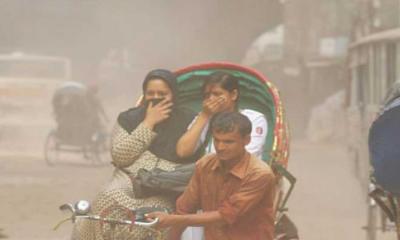
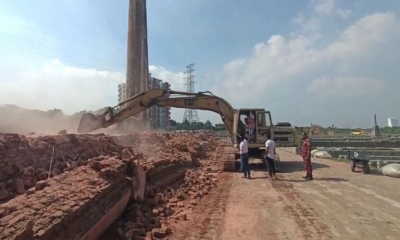
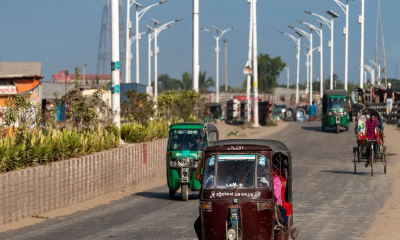
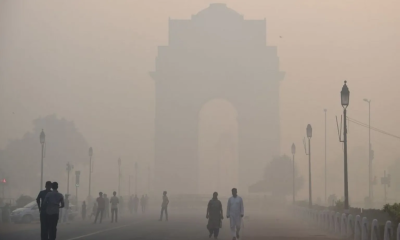
-20251226051932.jpeg)
-20251222051606.jpeg)



-20260217073221.webp)


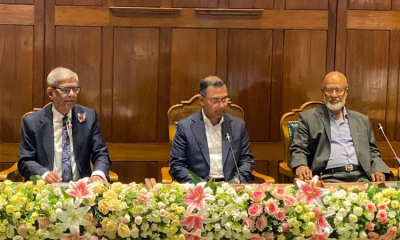

-20260216115008.webp)



















